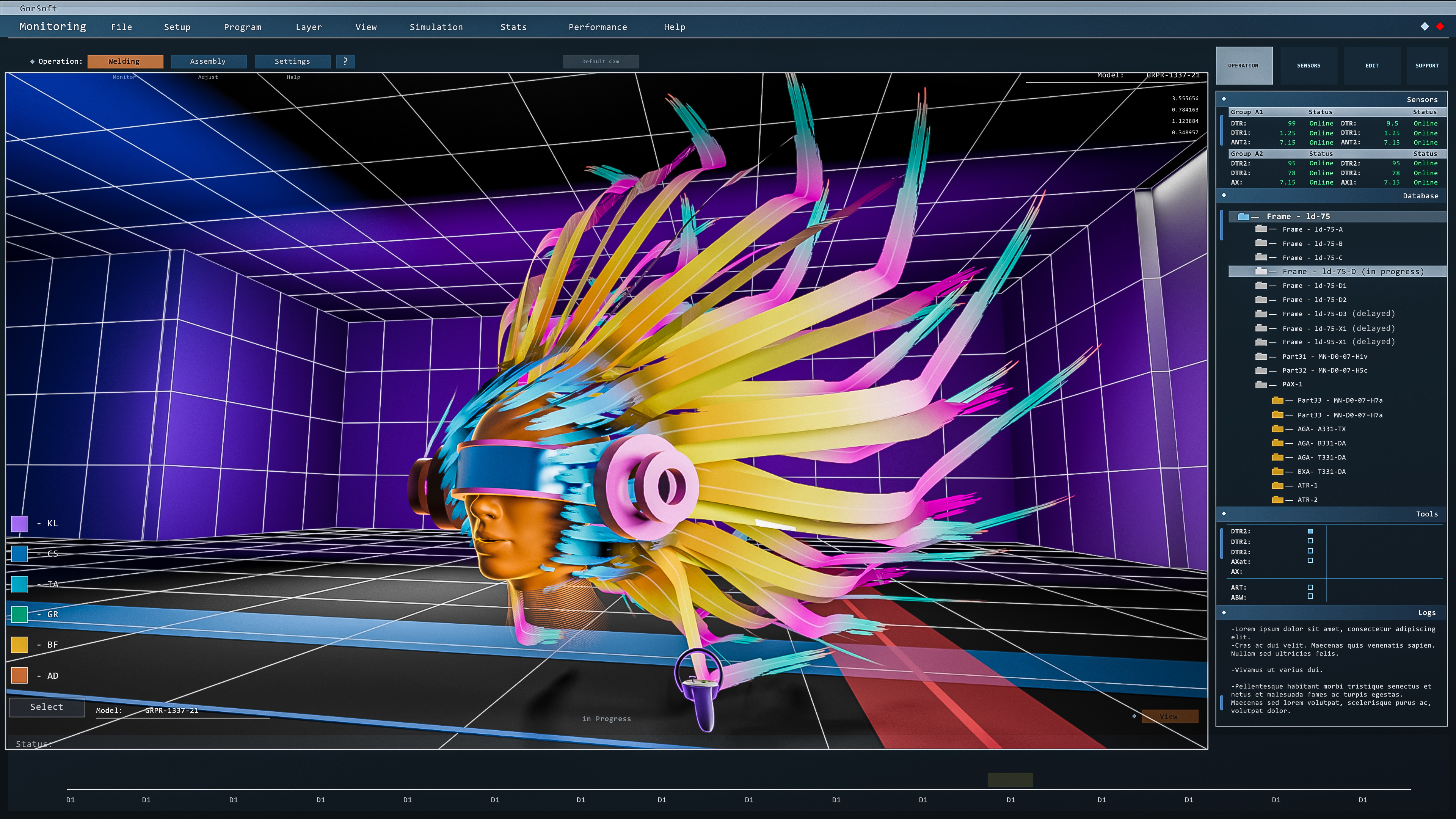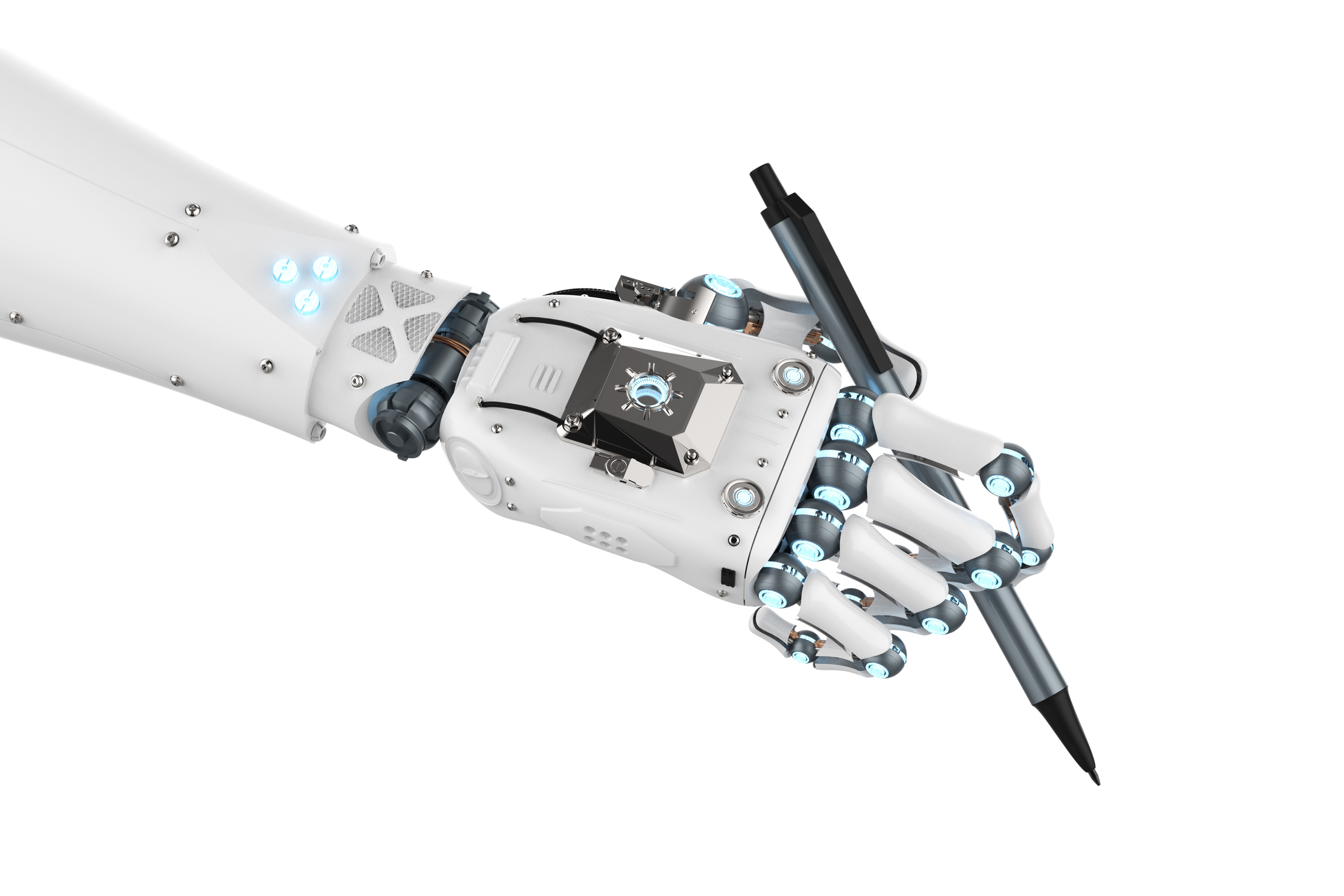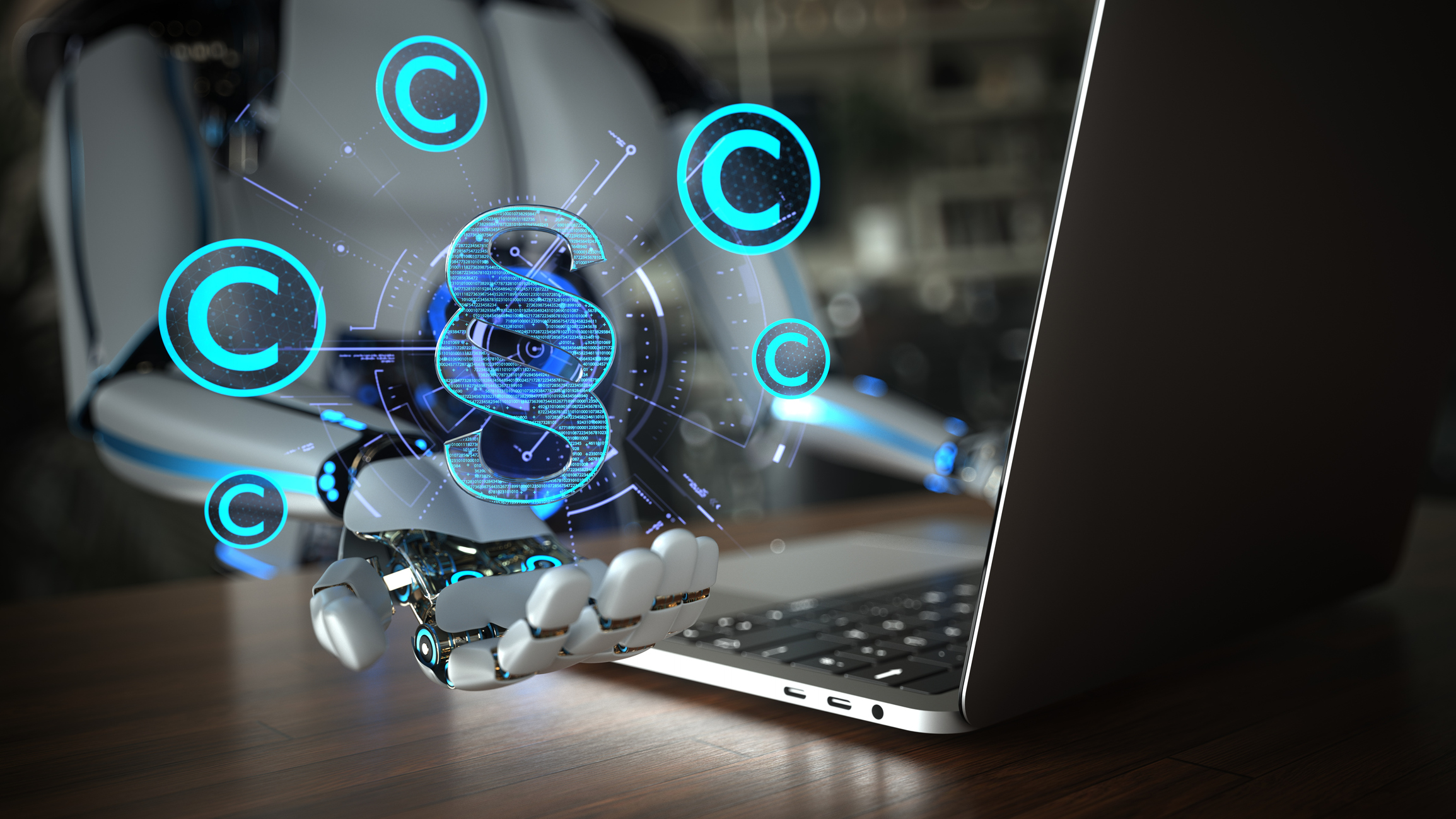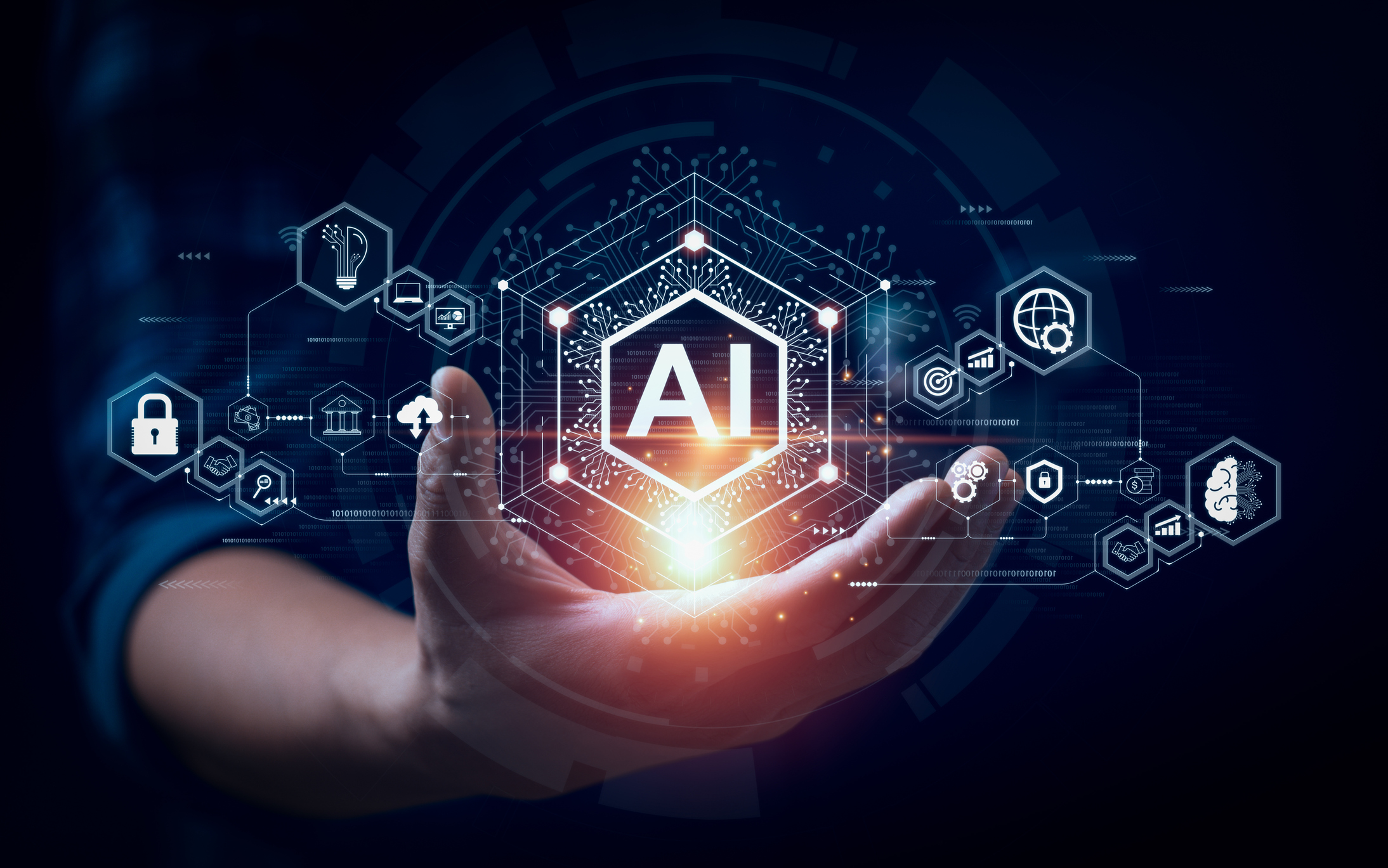Artificial Intelligence impact on Intellectual Property copyright | For UK businesses
26 September 2023
Already being used to create new forms of intellectual property, artificial intelligence is challenging existing IP concepts, such as copyright and patent law.
Steph Stafford, Senior Innovation Advisor - Innovation Specialist and Christopher Murphy, Senior Innovation Specialist - Digital, consider some of the implications of recent technological advances.
Artificial intelligence (AI) has the potential to revolutionise many industries and is becoming more pronounced with each passing month. One of the sectors already experiencing significant disruption is the world of creative and digital technology, which has seen several recent controversies relating to intellectual property rights.
Much of the discourse surrounds work that has traditionally been protected by copyright law (Copyright, Designs, and Patents Act 1988), but where AI has now thrown a cat among the pigeons.
Whereas, in the past, computer-generated creative content was largely reliant on human input – CGI created for movies, TV programmes and video games, for example, requires computer graphics artists – the new generation of machine learning can produce literature, imagery, videos or computer code from text prompts. (To some consternation within the creative community, Marvel used AI to generate the opening credits for its new Disney+ release [1].)
As pointed out by the World Intellectual Property Organization (WIPO), as far back as 2017: “The machine was at most an instrument or a tool very much like a brush or canvas […] But with the latest types of artificial intelligence, the computer program is no longer a tool; it actually makes many of the decisions involved in the creative process without human intervention.” [2]

Six years later, with generative AI tools like ChatGPT, Google Bard, DALL-E and BLOOM freely available, questions around who actually owns the intellectual property for AI-generated work is firmly in the spotlight.
Where does this leave the creative industries? And the AI companies and their investors? What are the risks for those looking to take advantage of these new tools?
Jargon buster
Generative AI is a broad label used to describe any type of artificial intelligence that can be used to create new text, images, video, audio or code. [10]
Intellectual property (IP) is a set of legal rights that protect original works of authorship, such as inventions, literary and artistic works, and symbols, names, and images used in commerce. IP rights are important because they encourage innovation and creativity by giving inventors and creators the exclusive right to exploit their creations. (Read here why SMEs need to recognise and protect this valuable asset.)
Text and data mining (TDM) means using computational techniques to analyse large amounts of information to identify patterns, trends and other useful information. TDM is used for training AI systems, amongst other uses. [11]
Implications of AI for content creators and users
Copyright disputes
The emergence of generative AI chatbots and image creators have highlighted potential issues over identifying who the content ‘belongs to’.
What these tools generate depends on the data fed into them; they can only produce content based on the ‘knowledge’ they have been ‘trained’ with – and, potentially, this could include copyrighted material.
There have been several recent high-profile cases where AI companies have been challenged by those creating or curating content, who have claimed their work has been used without permission.
In May 2023, Getty Images asked the High Court to prevent Stability AI selling its Stable Diffusion system in Britain, saying that the London-based company had illegally used the agency’s stock library to train the image creation tool. [3]
And, in July 2023, US comedian and author Sarah Silverman opened legal proceedings against both OpenAI and tech giant Meta for allegedly using her books in the training of their ChatGPT and LLaMa AI systems without permission. [4]
Both cases were ongoing at the time this blog post was published, but as AI technology progresses and legal regulations change, the copyright implications of using AI models may also evolve.

Plagiarism concerns for content users
It follows, then, that if it’s not clear where the original source has come from, there are questions around possible copyright infringement for those reusing content they’ve gathered from AI sources.
With the law around AI-generated content currently a grey area – see the latest UK position below – the sensible advice to businesses using generative AI for commercial purposes is to exercise caution. In the case of generating website content, for example, rewriting the copy in your own words, rather than just hitting Ctrl+C then Ctrl+V, is one step to avoid plagiarism concerns. (On a practical level, read here Why lifting text from ChatGPT isn’t going to help your SEO .)
Businesses should also check the usage guidelines of the AI provider to understand any specific conditions related to the generated content.

Other challenges for AI
Patents
There’s been debate over whether AI-generated inventions should be eligible for patent protection. Patents need to evidence a technological inventive step that hasn’t been made publicly available anywhere in the world.
Should AI systems themselves be recognised as inventors if they’re used to develop new products and processes? No, was the conclusion of the IPO consultation in 2022, which stated: “There is no evidence that UK patent law is currently inappropriate to protect inventions made using AI.” [5]
Previous cases have likewise rejected AI patent applications that did not satisfy the Patents Act 1977, which requires the applicant to identify a person as the inventor. One notable case was that of Stephen Thaler, who named his AI machine DABUS as the inventor on a patent application; this was rejected in the UK, as well as several IP offices across the world.

Deepfakes
Another challenge is that AI can be used to create deepfakes – videos or audio recordings that have been manipulated to make it appear as if someone is saying or doing something they never said or did.
There are clear implications here for performers in the creative industries, and concerns for the morality and ethics of AI, though the government states it is “unclear whether and how existing law (both in the IP framework and beyond it) is insufficient to address any issues. If intervention is necessary, the IP framework may not be the best vehicle for this. We will keep these issues under review from an IP perspective.” [6]
The future of AI and IP
As AI continues to develop, it is likely to pose even more challenges to IP. However, it is also likely to create new opportunities for IP protection. AI is already being used to track infringement of IP rights, such as by identifying counterfeit goods, and could be used to develop new forms of encryption to protect IP assets from unauthorised use.
It is also possible that artificial intelligence could be used to create new forms of IP, such as AI-generated inventions, which are not currently able to apply for patent protection under UK law.
The intersection of AI and IP is a complex and evolving area. As AI continues to develop, it is important to stay up to date on the latest developments and to understand the implications for IP protection.

Government policy
In March 2023, the government published a white paper, A Pro-Innovation Approach to AI Regulation [7], to guide the use of artificial intelligence in the UK, driving responsible innovation and maintaining public trust in this revolutionary technology.
In the same month, the UK government’s chief scientific adviser, Sir Patrick Vallance, presented the Pro-innovation Regulation of Technologies Review [8], recommending that “government should announce a clear policy position on the relationship between intellectual property law and generative AI to provide confidence to innovators and investors.”
As a result, the IPO is now working on a code of practice for copyright and AI, which “will help to overcome barriers that AI firms and users currently face, and ensure there are protections for rights holders. This ensures that the UK copyright framework promotes and rewards investment in creativity. It also supports the ambition for the UK to be a world leader in research and AI innovation.” [9]
These standards are being shaped by industry representatives from the technology, creative and research sectors, with working group meetings beginning in June 2023: “These sectors will help to ensure a balanced and pragmatic code of practice. It will enable both the AI and creative sectors to grow in partnership.”
Once formulated, the government wants parties to enter into the final code of practice voluntarily. However, it says “If the code of practice is not adopted or agreement is not reached, legislation could be considered.”
If any companies have concern about AI and IP, they are advised to contact the IPO directly at 0300 300 2000 or information@ipo.gov.uk.
Notes:
[1] The Guardian. ‘Marvel faces backlash over AI-generated opening credits’. 21/6/23
[2] WIPO Magazine. ‘Artificial intelligence and copyright’. 10/17
[3] Reuters. ‘Getty asks London court to stop UK sales of Stability AI system’. 1/6/23
[4] The Associated Press. ‘Sarah Silverman and novelists sue ChatGPT-maker OpenAI for ingesting their books’. 12/7/23
[5] Gov.uk. ‘Artificial Intelligence and Intellectual Property: copyright and patents: Government response to consultation’. Updated 28/6/22
[6] Gov.uk. ‘Artificial Intelligence and Intellectual Property: copyright and patents: Government response to consultation’. Updated 28/6/22
[7] Gov.uk. ‘A Pro-Innovation Approach to AI Regulation’. Updated 22/6/23
[8] Gov.uk. ‘Pro-innovation Regulation of Technologies Review: Digital Technologies’. 15/3/23
[9] Gov.uk. ‘The Government’s Code of Practice on Copyright and AI’ 29/6/23
[10] Gov.uk. ‘Guidance to civil servants on use of generative AI’. 29/6/23
[11] Gov.uk. ‘Artificial Intelligence and Intellectual Property: copyright and patents: Government response to consultation.’ Updated 28/6/22)
Further reading
Forbes. ‘Generative AI Overview’. 11/4/23
Financial Times. ‘Rapid advances in AI set to upend intellectual property’. 14/6/23
GC Business Growth Hub. ‘Can AI chatbots do my marketing and accounts?’. 8/8/23
GC Business Growth Hub. ‘Intellectual Property: Empower your business’. 26/4/23
Harvard Business Review. ‘Generative AI Has an Intellectual Property Problem’. 7/4/23

Steph Stafford, Senior Innovation Advisor - Innovation Specialist
Steph has over 25 years business development, coaching and management experience across all industry sectors, helping both start-up and established high-performing businesses with the potential for growth achieve their ambitions. Steph has provided specialist innovation support to SMEs across the North-West on numerous private/public funded growth programmes.
Her role as Innovation Advisor for GC Business Growth Hub is to support Greater Manchester based businesses to innovate and collaborate with local and National expertise.
Working with clients on a range of innovation-led projects, including: proof of market/concept through to commercialising new products and services; developing an innovative culture and building the team/future team, intellectual property, improving and streamlining systems and processes to provide strong foundations for growth, new business generation techniques and innovative routes to market, coaching and mentoring senior management teams and business leaders
Selected media coverage of Steph Stafford:
Retired bus driver creates low-cost sanitiser for care sector - About Manchester

Christopher Murphy, Senior Innovation Specialist - Digital
Chris is incredibly passionate about helping businesses use innovative digital technology to grow and succeed. With a proven track record of delivering tangible results that improve the bottom line, he has worked with organisations of all sizes and sectors – helping them develop and implement successful digital strategies.
With over 10 years of experience in the private and public sectors, Chris regularly receives glowing feedback from clients who have benefitted from his expertise across multiple specialisms, including: data, ecommerce, content management systems (CMS), search engine optimisation (SEO), pay-per-click marketing (PPC), social media management, and email marketing
Highly skilled in emerging technologies, he is always on the lookout for innovative ways to improve businesses that are open to change. Connect with Chris on LinkedIn.
Selected media coverage of Chris Murphy:
Choosing the Right Ecommerce Platform for Your Business Needs
New Ecommerce Platform Leads to Online Growth for Rochdale Manufacturer